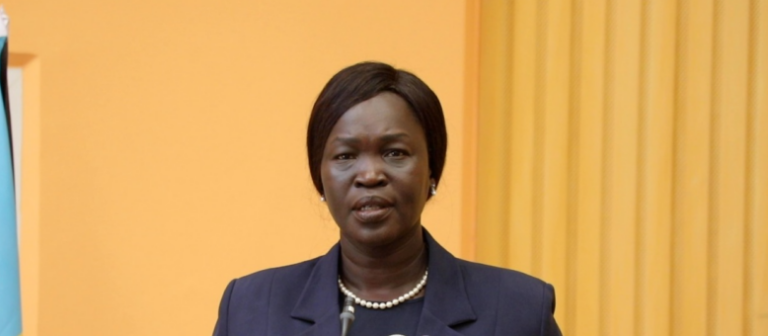South Sudan’s Ministry of Foreign Affairs said on Monday it will begin holding weekly media briefings in response to growing public pressure for greater transparency, following media reports suggesting the country was involved in talks to resettle Palestinians from Gaza.
The ministry again dismissed the reports as “false and unfounded,” saying no discussions—formal or informal—had taken place with Israel or any other country regarding the relocation of Palestinians to South Sudan.
It remains unclear why the ministry issued a second statement to deny the report.
The government has faced mounting criticism from civil society groups and citizens, who have called for clarity after media outlets reported earlier this month that Israeli officials had explored relocating displaced Gazans to third countries, including South Sudan.
“These reports do not reflect the policies or diplomatic engagements of the Government of South Sudan,” the ministry said in a statement. “We are deeply concerned by the circulation of misinformation that risks damaging our international standing and misleading the public.”
The ministry said it would begin hosting weekly press briefings every Thursday starting Sept. 4 to provide verified updates on foreign policy and counter misinformation.
Previously, media engagements were held on an ad hoc basis and were often limited in scope. Local media have also complained of bureaucratic hurdles in accessing foreign ministry officials.
“In the interest of transparency, improved coordination and enhanced public awareness, the Ministry of Foreign Affairs and International Cooperation announces that it will begin holding weekly media briefings every Thursday, starting from Sept. 4,” the statement said.
The ministry reiterated South Sudan’s commitment to national sovereignty, peaceful diplomacy and regional cooperation.
Ter Manyang, a civil society activist who has been monitoring the issue, told Radio Tamazuj the government has a history of suppressing uncomfortable truths.
“Based on my experience, there are no ‘rumors’ in South Sudan—only truths the government often tries to hide. A clear example is when the government initially denied the presence of the Uganda People’s Defense Forces (UPDF), only for the truth to emerge later,” he said.
“As a human rights activist, I no longer trust the information provided by the government. In many cases, they release half-truths, and the full story only comes to light much later.”
Manyang urged the government to clarify any agreements signed with foreign countries, including Israel and Uganda, so the public can be fully informed about their content and consequences.
“South Sudan is in a vulnerable position and at risk of coming under external influence—particularly from powers like the United States, the UK, China and Russia—without fully understanding the implications of such agreements,” he said.
“It is essential for the government to be transparent and for citizens to have a full understanding of these deals to ensure the country’s sovereignty is protected—by the same leaders who now govern it.”
On Aug. 13, South Sudan and Israel signed a memorandum of understanding (MoU) on bilateral cooperation.
The agreement, signed in Juba by South Sudan’s Foreign Minister Monday Semaya Kumba and Israeli Deputy Foreign Minister Sharren Haskel, establishes a framework for “diplomatic consultations” and “joint initiatives” between the two countries. However, the contents of the deal were not made public.




